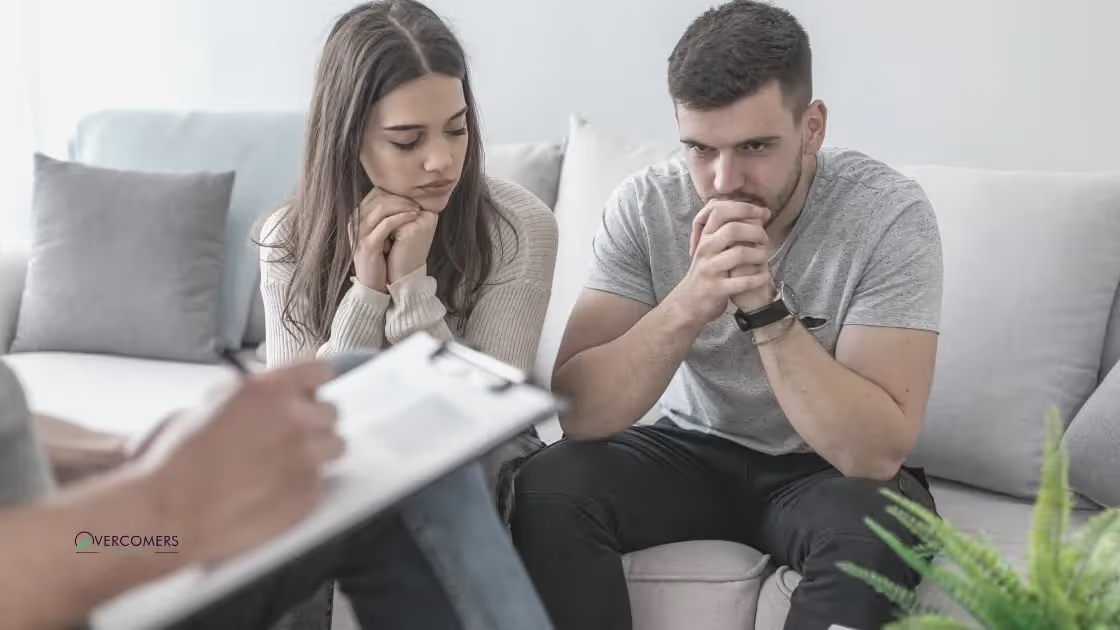IntroductionTaking responsibility is part of maintaining a healthy relationship. I can tell you personally that it's a challenge to get good at for some...

Taking responsibility is part of maintaining a healthy relationship. I can tell you personally that it's a challenge to get good at for some people. It can be a very rough and vulnerable experience to accept responsibility. It's good to healthily practice accountability in romantic relationships. I talked to a few experts on the matter and also provided some personal insights on how to take accountability in relationships. It all starts with a little self-awareness.
Self-reflection is the first step toward holding yourself accountable in a relationship. This involves assessing your own actions and behaviors critically and understanding how they affect your partner. This step is crucial because without self-awareness, it's difficult to change harmful patterns.
Something I wish I knew before is that true self-reflection can be uncomfortable, but it's necessary for growth.
Open communication means being honest and transparent about your feelings and actions.
It's important because it builds trust and prevents misunderstandings. Effective communication allows both partners to express their needs and concerns without fear of judgment.
I learned that being open isn't just about speaking your mind; it's also about being willing to hear hard truths from your partner.
Accepting responsibility involves acknowledging when you are wrong and understanding the consequences of your actions.
It's essential because it prevents the blame game and promotes a healthier dynamic.
This can help build trust, because there will be more issues like this in the future, and your partner needs to believe that you are honest and sincere when listening to them.
When you take responsibility, it shows maturity and respect for your partner.
I realized that accepting responsibility can boost your self-esteem as it shows you are capable of growth and improvement.
Making amends is about taking concrete steps to rectify your wrongs - It demonstrates your commitment to change and rebuilds your partner's trust. Acknowledging one's actions is only the beginning; taking steps to make things right is what solidifies accountability.
One thing I wish I knew earlier is that making amends isn't just a one-time act. Rather, it's an ongoing commitment to the process of proving your willingness to do better.

Continuous improvement means always striving to be a better partner and person. It's vital for long-term relationship health. Accountability means not just fixing past mistakes but actively working to prevent future ones.
I found that being proactive in your self-improvement can prevent many relationship problems before they start.
Holding yourself accountable in a relationship is a continuous journey that requires self-awareness, honesty, and a genuine willingness to grow.If you continue practicing these steps, you can possibly build a stronger, more respectful connection with your partner, free from unnecessary blame and conflict.
Overcomers Counseling can play a crucial role in growing and improving your relationships by helping you take responsibility in your personal interactions. When one partner is willing to acknowledge their part in what happened, it sets an example for maintaining honesty and integrity in the relationship. This counseling service teaches you how to handle hurt and other things that impact your sense of well-being, without assigning more blame.
Continuing to learn how to understand the importance of being responsible for one's actions and controlling what you can, you will find that Overcomers Counseling can help you lead a more fulfilling life. They guide you through the process of recognizing the point where expectations meet reality and how to manage the consequences effectively. Through their expert support, you will learn to maintain healthy relationships and improve your ability to take accountability. For more information, visit Couples Counseling at Overcomers Counseling.
It can be beneficial to reflect on what was discussed during sessions and try to implement any strategies or actions suggested by your therapist.
There are many different signs of codependency, but some common ones include: feeling responsible for your partner's happiness or well-being, enabling your partner's bad behavior, feeling like you can't function without your partner, and being overly dependent on your partner.
Yes, Tricare only covers marriage counseling when diagnosed with mental health conditions. Marriage counseling services sought for general relationship issues not tied to a recognized mental health disorder will not be covered.
Handling conflicts effectively involves:
EFT couples therapy is beneficial for couples experiencing relationship distress, marital issues, or emotional disconnection. It is suitable for partners looking to improve their emotional intelligence and create a more secure attachment.
The frequency of couples counseling sessions may vary depending on the specific issues being addressed and the recommendations of your therapist. Typically, couples attend weekly or biweekly sessions, especially during the initial phase of therapy. As progress is made, session frequency may decrease to provide the couple with opportunities to practice their new skills independently.